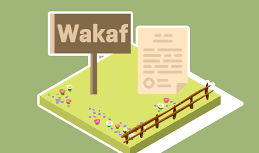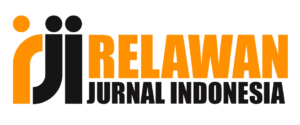Waqf Land Registration and Its Implications for Legal Certainty: A Case Study in Jember Regency
DOI:
https://doi.org/10.31292/mj.v4i2.149Keywords:
Land Registration, Waqf Land, Waqf PledgeAbstract
This study analyzes the implementation of the waqf land registration acceleration program in Jember Regency as an effort to increase recognition and legal protection of waqf assets. The method used is descriptive-qualitative by combining primary data from interviews and secondary data. This program is implemented through three main approaches: local acceleration, integration with the 2023 PTSL program, and a cross-sector scheme (Lintor) involving the regional government, Ministry of Religious Affairs, Land Office, and Indonesian Waqf Agency. Of the target of 1,000 plots, only 752 waqf plots and 87 lintor plots were successfully certified. The main obstacles include limited KUA infrastructure, unsystematic rotation of officials, data asynchrony between institutions, and low public legal awareness of the importance of certification. This study concludes that the effectiveness of the program is determined by the simplification of procedures, institutional synergy, and public education through religious institutions. Theoretically, this study expands the study of religious agrarian governance by applying a multi-actor approach and offering a collaborative model that can be replicated in other areas. Capacity building of Nazir and sustainable funding are also recommended to encourage the legalization of waqf land nationally and ensure long-term legal certainty.
Downloads
References
Anwar, S. (2020). Urgency of Waqf Land Registration in the Context of Indonesian Land Reform. Journal of Law and Legal Reform, 1(3), 479–492. https://doi.org/10.15294/jllr.v1i3.38216
Azmi, S. (2022). Pelaksanaan Legalisasi Tanah Wakaf. Jurnal El-Thawalib, 3(3). https://doi.org/10.24952/el-thawalib.v3i3.5652
Badan Wakaf Indonesia. (2023). Analisis Kinerja Pengelolaan Wakaf Nasional 2022. https://www.bwi.go.id/wp-content/uploads/2023/03/Indeks-Wakaf-Nasional-2022.pdf
Baharuddin, A. Z., Iman, R. Q., & Yaqub, A. (2022). Shahādah Istifādhah (Testimonium De Auditu) in Isbat Waqf Cases in Religious Courts from the Perspective of Fiqh and Civil Law. Al-’Adl, 15(2), 171–188.
Beik, I. S., Mei, A., & Widigdo, N. (2021). Nazir Management Improvement and Regulation Adjustments to Increase Waqf Land Productivity. In BWI Working Paper Series: Vol. BWPS No. 3. https://www.bwi.go.id/wp-content/uploads/2021/05/20210531-03-BWI-Working-Paper-Series-May-2021-Nazir-Regulation-Adjustments-v4.pdf
Bukido, R., & Makka, M. M. (2020). Urgensi Akta Ikrar Wakaf sebagai Alternatif Penyelesaian Sengketa Tanah. NUKHBATUL ’ULUM: Jurnal Bidang Kajian Islam, 6(2), 244–257. https://doi.org/10.36701/nukhbah.v6i2.161
BWI. (2023). Kemenag Sebut Target Sertifikasi Tanah Wakaf Terlampaui Sebagai Bukti Sinergi Lintas Lembaga. Badan Wakaf Indonsia. https://www.bwi.go.id/8606/2023/02/15/kemenag-sebut-target-sertifikasi-tanah-wakaf-terlampaui-sebagai-bukti-sinergi-lintas-lembaga/
Cakti, A. (2025). Kementerian ATR lakukan percepatan sertifikasi tanah wakaf pada 2025. ANTARA. https://www.antaranews.com/berita/4559658/kementerian-atr-lakukan-percepatan-sertifikasi-tanah-wakaf-pada-2025
Dakum, D., Nurwati, N., & Firdaus, M. I. (2021). Effectiveness of Complete Systematic Land Registration (PTSL) Against Waqf Land Certification at Magelang Regency. Al-Iktisab: Journal of Islamic Economic Law, 5(2), 99–114. https://doi.org/10.21111/al-iktisab.v5i2.6817
Direktorat Pemberdayaan Zakat dan Wakaf. (2024). Jumlah Tanah Wakaf Wilayah Jawa Timur. https://siwak.kemenag.go.id/siwak/tanah_wakaf_prop.php?_pid=MC9jYk9XaE8rVERXNG1KRFFMckkyUT09
Faizah, N. I., Estefany, N. V., & Latifah, F. N. (2022). Peranan Badan Wakaf Indonesia dalam Menangani Sengketa Wakaf di Indonesia. Legitima : Jurnal Hukum Keluarga Islam, 4(2), 154–162. https://doi.org/10.33367/legitima.v4i2.2266
Fajrin, F., Aunuh, N., & Kharisma Nuryasinta, R. (2023). Optimizing Foundation Asset Status Through Assistance with Land Registration for the “M” Mosque in Malang City. Jurnal Dedikasi Hukum, 3(2), 157–170. https://doi.org/10.22219/jdh.v3i2.29465
Fatimah, F. (2019). Pendaftaran Tanah Wakaf dalam Konteks Kepastian Hukum Hak Atas Tanah. Jurnal Hukum Samudra Keadilan, 13(2). https://doi.org/10.33059/jhsk.v13i2.908
Fauzi, R. M. Q., Hapsari, M. I., Herianingrum, S., Fanani, S., & Kurnia, T. (2022). The challenges of empowering waqf land in Indonesia: an analytical network process analysis. International Journal of Ethics and Systems, 38(3), 426–442. https://doi.org/10.1108/IJOES-03-2021-0061
Hapsari, D. R. I., Luthfi, M., & Fajrin, Y. A. (2023). Assistance for the Registration of Waqf Land Managed by the Leaders of The Muhammadiyah Branch, Kecamatan Dau-Malang. Jurnal Dedikasi Hukum, 3(2), 116–132. https://doi.org/10.22219/jdh.v3i2.27239
Ilyas, M., Huda, M., & Faisal, F. (2023). The Problem of Waqf Land Legality in Sarmi Regency: A Sociological Perspective of Law. Al-Bayyinah, 7(2). https://doi.org/10.30863/al-bayyinah.v7i2.4326
Jabar, A. (2019). Pendaftaran Sebagai Kepastian Hukum dalam Pengelolaan Tanah Wakaf. Al-Ahwal: Jurnal Hukum Keluarga Dan Kajian Keislaman.
Komarudin, T., Damiri, A., & Jalaludin, J. (2020). Pengelolaan Wakaf Produktif Tanah Sawah di Yayasan Islam Pondok Pesantren Miftahul Jannah Jatibaru Kecamatan Jatisari Karawang. EKSISBANK: Ekonomi Syariah Dan Bisnis Perbankan, 4(1), 1–10. https://doi.org/10.37726/ee.v4i1.93
Mubarok, A. Z. S., Saputra, Y., & Darmawan, D. (2023). Accelerating Waqf Land Certification Problem and Solution through the Complete Systematic Land Registration Program (PTSL). Hikmatuna : Journal for Integrative Islamic Studies, 9(2), 219–234. https://doi.org/10.28918/hikmatuna.v9i2.1396
Muthoifin, M., Yusran, Q. Q., Masithoh, M., Nuha, N., Waston, & Nirwana, A. (2024). The Practice of Changing the Status of Change of Waqf Property in the Islamic Social Economic View. Journal of Ecohumanism, 3(6), 229–238. https://doi.org/10.62754/joe.v3i6.3996
Nawawi, N., Mirwan, M., Anwar, Z., & Juandi, W. (2024). Wakaf Uang di Indonesia: Tantangan, Peluang dan Langkah-Langkah Menuju Pemanfaatan Optimal. LISAN AL-HAL: Jurnal Pengembangan Pemikiran Dan Kebudayaan, 18(1), 126–147. https://doi.org/10.35316/lisanalhal.v18i1.126-147
Niswah, E. M. (2018). Problematika Yuridis Wakaf Hak Kekayaan Intelektual di Indonesia. Volksgeist: Jurnal Ilmu Hukum Dan Konstitusi, 1(2). https://doi.org/10.24090/volksgeist.v1i2.1907
Prasetyo, D., Suratmin, & Syarifuddin. (2021). Buku Saku Sertifikasi Tanah Wakaf. Badan Wakaf Indonesia. https://www.bwi.go.id/wp-content/uploads/2021/10/buku-saku-sertifikasi-tanah-wakaf.pdf
Purwaningsih, S., & Susilowati, D. (2020). Peran Wakaf dalam Pemberdayaan Ekonomi Umat. Jurnal Ekonomi, Bisnis, Dan Akuntansi, 22(2), 191–203. https://doi.org/10.32424/jeba.v22i2.1595
Ratnasari, V., & Ridlwan, A. A. (2020). Persepsi Nazhir dalam Pendaftaran Tanah Wakaf. Muqtasid: Jurnal Ekonomi Dan Perbankan Syariah, 10(2). https://doi.org/10.18326/muqtasid.v10i2.80-94
Saputra, L. H. (2021). Productive Waqaf: Development Strategy in History. International Journal SARWAH, 19(1).
Sudirman, Abdullah, I., Qudsy, S. Z., Fakhruddin, & Bachri, S. (2022). Dysfunction of Muslim’s Public Resource: A Study of Waqf Land Disorganization in Indonesia. De Jure: Jurnal Hukum Dan Syar’iah, 14(1). https://doi.org/10.18860/j-fsh.v14i1.16240
Syarief, E. (2021). Optimization of waqf land management in Indonesia. International Journal of Research in Business and Social Science (2147- 4478), 10(2), 270–283. https://doi.org/10.20525/ijrbs.v10i2.1076
Windayana, S. (2023). Percepatan Sertipikasi Tanah Wakaf di Indonesia. Kementerian Agraria Dan Tata Ruang/Badan Pertanahan Nasional. https://www.bwi.go.id/wp-content/uploads/2023/12/Paparan-Sertipikasi-Wakaf-4-Desember-2023.pdf
Yusnita Eva. (2023). Efforts to Overcome Social Prejudice against Waqf Land Certification in Padang Pariaman Regency Viewed from Fiqh and Its Practice. Journal of Asian Wisdom and Islamic Behavior, 1(1). https://doi.org/10.59371/jawab.v1i1.35

Downloads
Published
How to Cite
Issue
Section
License
Copyright (c) 2025 Alvanto Wibisono, Dian Aries Mujiburohman, Dian Dewi Khasanah (Author)

This work is licensed under a Creative Commons Attribution-ShareAlike 4.0 International License.

















